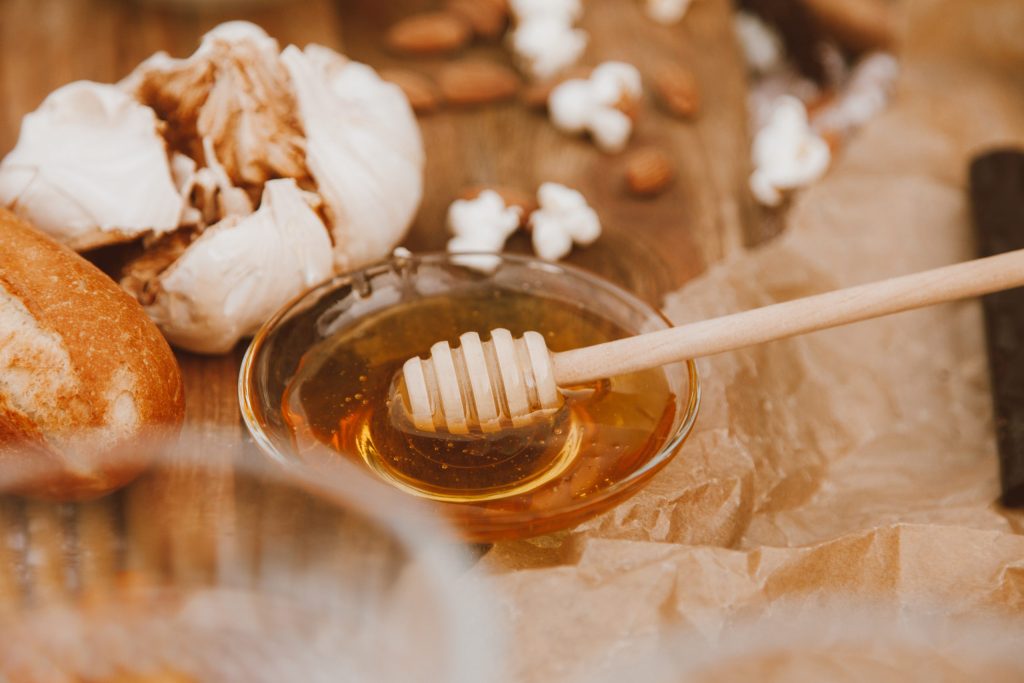
In a recent article, we addressed the question, ‘How Do Bees Make Honey?’ and explained the procedure in detail –– from how bees select the flowers they will use, to the way in which they transport the nectar. The complex chemical and biological process is nothing short of miraculous, and plays an important part in bees’ ability to sustain their colonies. Even so however, bees are not the only ones that benefit from the production of honey. In fact, the substance might just be able to improve your health.
Naturally, honey has more nutritional value than sugar, containing prebiotic, antioxidants, and vitamins. It also causes less harm than sugar or most artificial sweeteners so many of us regularly consume. However, as SymptomFind explained in a post on the subject, most of the honey we buy in stores has gone through some kind of refinement process. This ends up giving it a much higher amount of calories, and detracts from some of the natural benefits. As a result, the honey we use isn’t quite the healthy sugar alternative we think of it as. When you harvest honey direct from the hive, however, it’s a different matter entirely.
This is a more accessible option these days than in the past, largely because beekeeping has become a popular hobby among those who want to “save the bees.” And while Scientific American notes that this is a somewhat misguided effort (honey bees are not the ones in need of saving), it’s still a wonderful activity that allows for the safe and responsible harvest of nature honey for use. With that in mind, we want to look at some of the different ways to go about the process.
How to Harvest Honey Without an Extractor
In the past, people have normally harvested honey from the beehives in the deep forest. We did not know how to raise them to collect it honey yet. Thus, the process of harvesting is very manual and also dangerous at some points as you can see in the video above.
Later, we, as human, started to find way to raise the bees and build beehive farming so that we can control the honey business for our living and consumption. In this process, beekeepers can easily harvest the honey by carefully removing frames from the hive and scrape them with special tools. This removes wax capping and helps to ease the honey into a receptacle below.
This is a very efficient way to get the honey out, but it requires a strainer to be held at the bottom to filter out any unwanted particles. This process also leaves parts of the wax the bees have built, reducing the energy they will need to spend rebuilding it.
How to Harvest Honey with an Extractor
A honey extractor can make the process a lot easier. To use an extractor, you essentially place several frames at a time (usually four) into a spinning container. Then, as a post on Instructables explains in detail, the centrifugal force ensures that the honey is pushed to the sides, where it drips through a small opening and into a sort of bucket.
The honey still has to be strained, but the process has the added advantage of concentrating all the wax inside the extractor. This can later be melted and used to create different products, like skin lotion and furniture polish.
How to Clean an Extractor
Extractors are very useful, but the remaining mess after use may dissuade some beekeepers from wanting to use them often. One simple solution is to tip the extractor enough for the residual honey to accumulate close to the opening, leaving you with the simple task of opening it the next day. The remaining wax can be cleaned by filling the extractor with cold water. After a day and a rinse, most of the residue will be gone, though you may still have to get a little hands-on.
Harvesting your own honey can be a rewarding experience but, more importantly, an excellent and environmentally friendly way to improve your health. However, it’s important to understand the requirements of beekeeping and harvesting –– like wearing protective gear and choosing your working tools carefully. If done correctly, you and your family will enjoy gallons of natural and nutritious honey for many years to come.
If you want to learn more about how to take advantage of the most recent gadgets, from agricultural drones to light bulb changers, make sure to return to SpaceMazing soon.